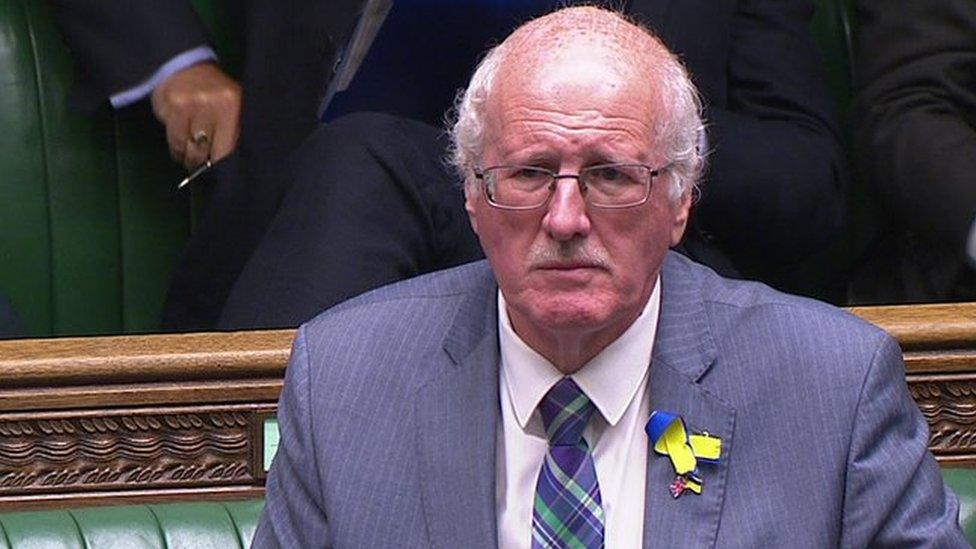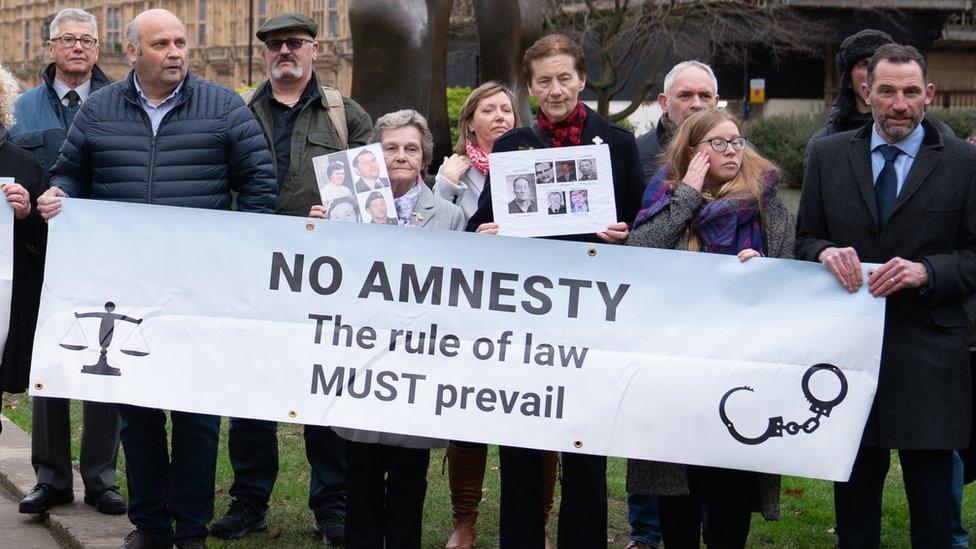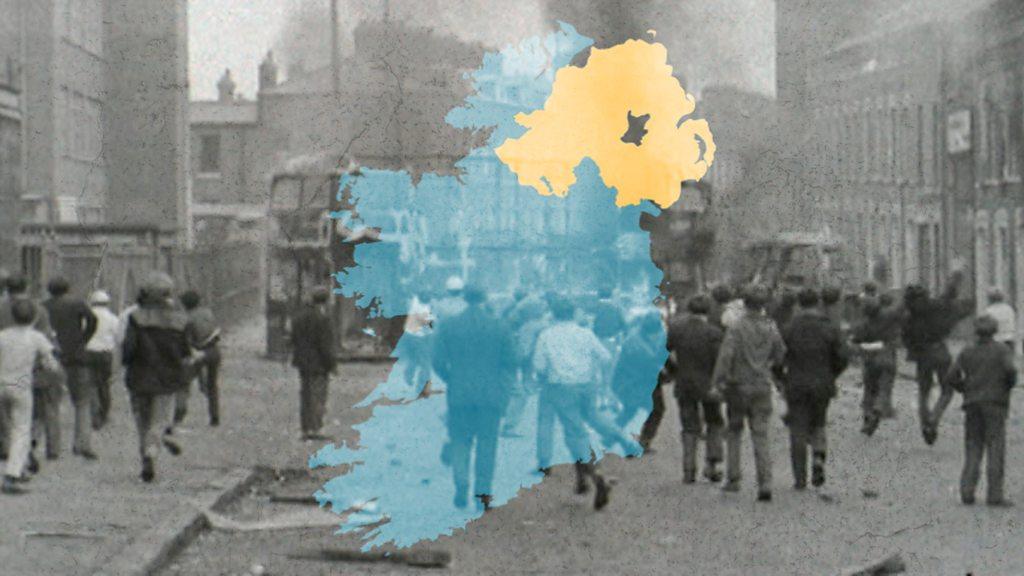Troubles legacy bill: Public survey on controversial body opens
- Published

Sir Declan Morgan is the chief commissioner of the new Troubles legacy body
The public are being asked for their views on how a new body designed to address the legacy of the Troubles in Northern Ireland will work.
The Independent Commission for Reconciliation and Information Recovery (ICRIR) has opened a public survey to develop its policies and procedures.
It is part of UK government legislation aimed at dealing with Troubles issues.
The bill would end Troubles-era cases and inquests, and offer a conditional amnesty to those accused of killings.
It is opposed by victims' groups, the Irish government and political parties in Northern Ireland, who say it will remove access to justice for victims and their families.
The ICRIR is due to take over hundreds of unresolved Troubles cases from next year.
The main purpose of the body will be to decide whether criminal investigations should be opened as part of Troubles-related deaths and incidents.
The online survey, which is anonymous, is due to close on 10 September.
The ICRIR chief commissioner Sir Declan Morgan said it was an opportunity to establish how the body could best serve people in Northern Ireland.
"We want to hear from everyone - all of us here, as well as those affected by the Troubles in the Republic of Ireland and Great Britain," he wrote in The Irish News.
"Whether you support or oppose the Legacy Bill proposals, we want to hear from you about how we can make the commission work in a way that reflects people's needs."
'A bizarre circumstance'
Paul Gallagher, a member of the Victims' Forum and trauma education officer at the WAVE Trauma Centre. criticised the legacy bill and survey.
"It's really about just shutting down any sort of investigations, whether it's inquests, whether it's police investigations, whether it's the Legacy Investigation Branch, the Police Ombudsman and every other avenue that victims and survivors have been able to use over this last few years to get the best possible outcome for them," he said.
"For me, it's a bizarre circumstance now we're being asked to fill in a survey to sort of rubber-stamp this fait accompli.
"I think it's actually a cruel thing to ask people to do."
Related topics
- Published18 July 2023

- Published8 June 2023

- Published13 August 2019
